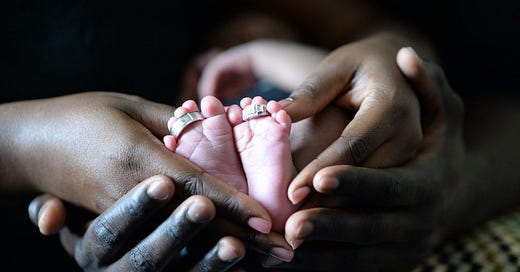In the contemporary American pro-life movement, there's an elephant in the room that's too significant to ignore yet astonishingly remains largely unaddressed. The urgent question beckoning from the shadows is this: Does the pro-life movement genuinely resonate with the inflexible, biblically grounded tenets of faith and repentance? To be candid, the uncomfortable reality suggests a jarring misalignment. The issue at hand transcends mere theological minutiae—it poses a fundamental challenge that pierces the core of the mainstream pro-life ethos. Renowned organizations such as the National Right to Life and the Southern Baptist Convention's Ethics and Religious Liberty Commission (ERLC) serve as archetypal illustrations of this grave incongruity.
But to grasp the scope of this dilemma, it's imperative to understand the historical and social context in which it exists. Since the 1973 Roe v. Wade decision, over 60 million unborn babies have been terminated under the banner of "women's rights." This staggering figure cannot be brushed aside as inconsequential—it represents an ongoing tragedy of epic proportions. The grim toll continues to rise every year despite the Supreme Court's decision to overturn Roe, as the mantle of "choice" conveniently cloaks the extermination of the most innocent and vulnerable among us.
In this bleak landscape, the Church—a supposed pillar of moral authority—has often faltered in her mission to be the conscience of society. Instead of resoundingly declaring God's truth and demanding repentance, many Christian organizations have adopted a posture of compromise, half-measures, and, at times, near silence. This negligence serves only to exacerbate the existing crisis, allowing it to fester in the shadows, and underscores the urgency for the pro-life movement to align itself unapologetically with the unyielding biblical doctrines it claims to uphold.
Exhibit A is the 2022 open letter penned by some of the leading pro-life organizations in the United States. This letter made the bewildering claim that the many groups and activists this letter represented "do not support any measure seeking to criminalize or punish women" who undergo abortions. While at first glance, it may seem noble to defend women who may be pressured by forces outside of their control into an abortion, the reality is that this position is fundamentally at odds with the clear biblical teaching that true redemption can only occur through repentance. Biblically speaking, genuine repentance requires the acknowledgment of sin, personal accountability, and a resolve to forsake that sin. By depicting women who seek or have had abortions as mere victims of society or victims of the abortion industry, they not only trivialize the gravity of taking innocent human life but also sidestep the compelling biblical imperative for repentance.
Another glaring issue that merits attention is the unsettling alignment of prominent pro-life organizations with social justice paradigms. Far from zeroing in on the unambiguous moral dimensions of abortion as a direct affront to the Imago Dei and to God Himself, these so-called "pro-life" movements have opted for tactical alliances with leftist ideologues. Instead of standing resolutely against abortion in a manner that aligns with biblical principles no matter the cost, they seek common ground in advancing softer versions of abortion legislation or endorsing social welfare programs—a calculated betrayal of the cause they claim to champion. In essence, the aim is to dissuade mothers from terminating their pregnancies by dangling the carrot of financial aid or psychological guidance, sidestepping the urgent necessity to confront head-on the sinful nature of abortion itself, not to mention the likely sexual immorality that led to it.





